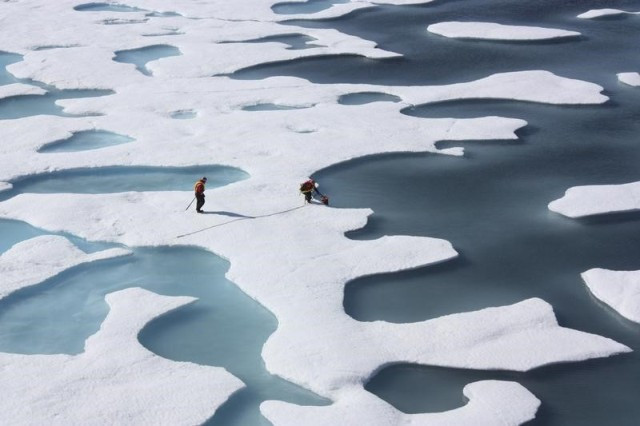Goldman Sachs becomes the biggest U.S. bank to halt financial services, including loans, that are being funneled out to oil drilling and related exploration in the Arctic region, including in the Arctic National Wildlife Refuge. Further, it will no longer issue funding for new thermal coal mines and coal-fired power projects worldwide.
Goldman Sachs joined other big banks worldwide that will no longer funnel out funding in oil exploration projects in the Arctic that have long been proven to be detrimental for the environment. It followed UniCredit, Royal Bank of Scotland and Barclays.
The investment bank became the first major bank to prohibit funding for new Arctic drilling. It also became the first bank in the United States to turn its back on new thermal coal mining and coal projects worldwide.
In a statement from Ben Cushing, Sierra Club campaign representative, Goldman Sachs was lauded for its decision given that the Trump administration had already turned its back from its Paris agreement to curb climate change. Cushing added that the current administration had been neglecting Indigenous rights to a clean environment and resources.
"Goldman Sachs is right to recognize that destroying the Arctic Refuge would be bad business. We hope other American banks will follow their lead," Cushing said.
Sierra Club is leading discussions among the financial industry about the threats of fossil fuel operations in the Arctic region and the world.
Most recently, Goldman Sachs pledged a total of $750 billion over the next ten years in investing and financing in projects that promote climate actions. The bank said it will issue loans and render financial support to initiatives related to sustainable vehicles, affordable education, and food production.
The investment bank said it wants clients to know it is committed to sustainable development by making it a top priority. Specifically, the bank has a high interest in renewable power and electric vehicle development.
As big banks joined movements against climate action and actively participate in initiatives curbing oil and coal production, analysts still predict that the global offshore drilling market will grow in the coming years.
One estimate said the global offshore drilling market is expected to grow to $157.47 billion by 2026, from $79.53 billion in 2017. Further, a big boost to the market will come from major opportunities in Arctic explorations. Nevertheless, analysts recognized that the drilling industry faces challenges coming from environmental advocates, the government's support in Paris Climate Change agreement, and low oil prices.





